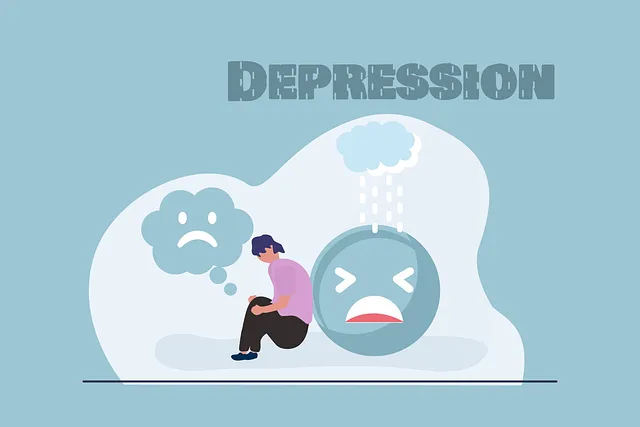Kaiser Permanente's mental health center in Longmont focuses on understanding community needs through a comprehensive policy analysis, identifying gaps, especially among underserved populations, and tailoring interventions. They integrate mindfulness meditation and evidence-based practices to bridge mental health disparities and improve well-being. Effective outreach strategies, including partnerships with local organizations, schools, and faith groups, are crucial for engaging the community. The center's holistic approach, featuring wellness journaling exercises and communication strategies, has increased mental health awareness and access to resources. Evaluating program outcomes and stakeholder feedback is essential for continuous improvement, ensuring tailored services that resonate with diverse communities.
Community outreach programs play a vital role in addressing healthcare disparities, particularly in mental well-being. This article explores how Kaiser Permanente Longmont’s innovative initiative bridges gaps in mental health services, focusing on three key aspects. We delve into understanding the unique needs of the community, designing effective strategies that engage local residents, and implementing best practices based on successful Kaiser Permanente programs. Additionally, we discuss measuring impact to ensure continuous improvement in addressing mental health challenges within our communities.
- Understanding Community Needs: Identifying Gaps in Mental Health Services at Kaiser Permanente Longmont
- Designing Effective Outreach Strategies: Engaging the Local Community for Mental Well-being
- Implementing Programs: Best Practices and Success Stories from Kaiser Permanente's Initiative
- Measuring Impact and Continuous Improvement: Evaluating the Effectiveness of Community Outreach Programs
Understanding Community Needs: Identifying Gaps in Mental Health Services at Kaiser Permanente Longmont

At Kaiser Permanente Longmont, understanding community needs is a cornerstone of their mental health service provision. The mental health center has recognized gaps in services, particularly among underserved populations, highlighting the importance of tailored interventions. A thorough Mental Health Policy Analysis and Advocacy initiative has been instrumental in identifying these gaps, fostering empathy building strategies that resonate with diverse communities.
By incorporating mindfulness meditation and other evidence-based practices, Kaiser Permanente Longmont aims to address mental health disparities and enhance overall well-being within their community. This approach not only reflects the center’s commitment to inclusive healthcare but also promises to revolutionize access to quality mental health services for all residents, ensuring that no one is left behind in the pursuit of a healthier, happier life.
Designing Effective Outreach Strategies: Engaging the Local Community for Mental Well-being

Designing effective outreach strategies is paramount when engaging the local community for mental well-being, especially in areas like Longmont where institutions such as the Kaiser Permanente mental health center play a pivotal role. These strategies should be tailored to understand and address unique cultural and social dynamics of the community. By fostering partnerships with local organizations, schools, and faith groups, the Kaiser Permanente mental health center can enhance accessibility to its services and promote mental health awareness.
Implementing evidence-based practices such as Mind Over Matter principles and integrating emotional regulation techniques into outreach programs can empower individuals to take charge of their mental health. A comprehensive Mental Health Policy Analysis and Advocacy approach ensures that these initiatives are not just short-term drives but sustainable efforts that contribute to the overall well-being of the community. Through collaborative and inclusive practices, the Kaiser Permanente mental health center in Longmont can create a supportive environment where everyone feels valued and equipped to navigate life’s challenges.
Implementing Programs: Best Practices and Success Stories from Kaiser Permanente's Initiative

Implementing community outreach programs can be a game-changer for organizations aiming to improve mental health and well-being. Kaiser Permanente’s initiative in Longmont serves as an excellent case study, highlighting best practices that other healthcare centers can emulate. By integrating various strategies, they successfully engaged with the local community, fostering open dialogue and promoting positive thinking.
The program included on-site mental wellness journaling exercises at local events, encouraging participants to reflect on their emotional well-being. This interactive approach not only increased awareness but also provided valuable insights into the mental health concerns of the community. Additionally, communication strategies were employed to ensure that services and resources were accessible and understandable to diverse populations. Through partnerships with local schools and community centers, Kaiser Permanente’s initiative reached a wide range of individuals, offering guidance on managing stress and cultivating positive thinking habits. This holistic effort resulted in improved access to mental health support and empowered the community to take charge of their well-being.
Measuring Impact and Continuous Improvement: Evaluating the Effectiveness of Community Outreach Programs

Evaluating the success of community outreach programs is vital for understanding their long-term impact and making informed improvements. At Kaiser Permanente mental health centers, such as the one in Longmont, this process involves setting clear goals and measurable outcomes related to the program’s objectives. For instance, a focus on Depression Prevention might include tracking the number of individuals who complete a mood management workshop and follow-up surveys assessing their improved knowledge and self-reported changes in symptoms.
Continuous improvement requires regularly gathering feedback from participants, community partners, and staff involved. This can be achieved through various methods like focus groups, interviews, or surveys. By analyzing these insights, mental health centers can adapt their communication strategies to better suit the needs of diverse communities. For example, understanding cultural preferences in sharing information or preferred formats for educational materials ensures that outreach programs resonate with a broader audience, ultimately enhancing their effectiveness in promoting mental well-being and managing mood disorders.
Community outreach programs, as demonstrated by Kaiser Permanente’s successful initiative at their Longmont mental health center, play a pivotal role in addressing local needs and bridging gaps in healthcare services. By designing strategies that resonate with the community, such programs foster better mental well-being and significantly impact overall health outcomes. Continuous evaluation and improvement ensure these initiatives remain relevant and effective, benefiting both individuals and communities as a whole.






